Information Technology
Advanced Diploma in Information, Communication, and Emerging Technologies
Empowering Tomorrow’s Innovators with Cutting-Edge Technologies
Apply Now
NQF Level:
7
Credits:
120
Minimum Duration:
1 Year
Faculty:
Information, Communication & Future Technologies
Department:
Information & Communication Technology
Accreditation Authority:
Council on Higher Education
Drive Innovation with AIFT’s Advanced Diploma in ICET
The Advanced Diploma in Information, Communication, and Emerging Technologies equips students with a comprehensive understanding of advanced ICT applications, emerging technologies, and leadership strategies. Combining theoretical knowledge with practical application through Work Integrated Learning (WIL), this program prepares learners to excel in tech-driven industries.
Why Choose This Qualification?
Gain expertise in ICT, cybersecurity, and innovation leadership. Learn through hands-on WIL modules and capstone projects. Progress into advanced ICT fields or specializations in AI, IoT, or blockchain. Graduate with the tools to lead digital transformation.
Admission Requirements.
Applicants must meet one of the following criteria:
- NQF Level 6 Advanced Certificate or Diploma or equivalent.
- Relevant work experience may qualify through Recognition of Prior Learning (RPL).
- NQF Level 6 Advanced Certificate or Diploma or equivalent.
- Relevant work experience may qualify through Recognition of Prior Learning (RPL).
Qualification Structure.
Semester 1:
- ICT in Practice 700 (12 Credits)
- Communication Systems and Applications 700 (12 Credits)
- Emerging Technologies and Innovations 700 (12 Credits)
- Cybersecurity Strategies 700 (12 Credits)
Semester 2:
- Technology Leadership and Innovation 700 (12 Credits)
- Cybersecurity Management 700 (12 Credits)
- Digital Transformation and Strategy 700 (12 Credits)
- Work Integrated Learning 700 (12 Credits)
Electives (Choose one):
- AI, Robotics, and Automation Applications 700 (12 Credits)
- Cloud Computing and Virtualisation 700 (12 Credits)
- Cybersecurity and Ethical Hacking 700 (12 Credits)
- Digital Marketing and E-commerce 700 (12 Credits)
- IT Governance and Risk Management 700 (12 Credits)
- ICT in Practice 700 (12 Credits)
- Communication Systems and Applications 700 (12 Credits)
- Emerging Technologies and Innovations 700 (12 Credits)
- Cybersecurity Strategies 700 (12 Credits)
Semester 2:
- Technology Leadership and Innovation 700 (12 Credits)
- Cybersecurity Management 700 (12 Credits)
- Digital Transformation and Strategy 700 (12 Credits)
- Work Integrated Learning 700 (12 Credits)
Electives (Choose one):
- AI, Robotics, and Automation Applications 700 (12 Credits)
- Cloud Computing and Virtualisation 700 (12 Credits)
- Cybersecurity and Ethical Hacking 700 (12 Credits)
- Digital Marketing and E-commerce 700 (12 Credits)
- IT Governance and Risk Management 700 (12 Credits)
Learning Outcomes.
Graduates will:
- Demonstrate comprehensive ICT knowledge and emerging tech applications.
- Apply critical thinking to implement innovative tech solutions.
- Lead projects using advanced ICT management and leadership principles.
- Analyze data for strategic decisions using business intelligence tools.
- Implement digital transformation strategies to enhance organizational performance.
- Demonstrate comprehensive ICT knowledge and emerging tech applications.
- Apply critical thinking to implement innovative tech solutions.
- Lead projects using advanced ICT management and leadership principles.
- Analyze data for strategic decisions using business intelligence tools.
- Implement digital transformation strategies to enhance organizational performance.
International Comparability.
Aligned with:
- University of Canterbury (New Zealand): Focus on emerging tech and digital transformation.
- Stanford University (USA): Emphasis on AI, cybersecurity, and innovation leadership.
- University of Canterbury (New Zealand): Focus on emerging tech and digital transformation.
- Stanford University (USA): Emphasis on AI, cybersecurity, and innovation leadership.
Qualification Modes of Delivery and Support.
Flexible options include:
- Contact Learning: In-person classes.
- Blended Learning: Online and face-to-face sessions.
- Distance Learning: Self-paced study.
- Contact Learning: In-person classes.
- Blended Learning: Online and face-to-face sessions.
- Distance Learning: Self-paced study.
Career Opportunities.
Possible roles include:
- AI Engineer
- Cybersecurity Specialist
- Cloud Solutions Architect
- Digital Project Manager
- Technology Consultant
- Data Analyst
- IT Governance Specialist
- AI Engineer
- Cybersecurity Specialist
- Cloud Solutions Architect
- Digital Project Manager
- Technology Consultant
- Data Analyst
- IT Governance Specialist
Articulation Options.
Pathways include:
- Horizontal: Advanced Diploma in Data Science (NQF Level 7).
- Vertical: Postgraduate Diploma in IT (NQF Level 8).
- Diagonal: Postgraduate Diploma in IT Governance and Risk Management (NQF Level 8).
- Horizontal: Advanced Diploma in Data Science (NQF Level 7).
- Vertical: Postgraduate Diploma in IT (NQF Level 8).
- Diagonal: Postgraduate Diploma in IT Governance and Risk Management (NQF Level 8).
Ensure Compliance, Empower Financial Accuracy.
With the Occupational Certificate in Tax Technology, you’re not just earning a qualification—you’re stepping into a crucial role in maintaining tax compliance and supporting financial accuracy. Gain the expertise to manage tax calculations, ensure VAT and payroll compliance, and navigate complex tax regulations with confidence.
Don’t wait to become an essential part of the financial sector.
Enroll today and build a career where you secure financial integrity and guide clients with precision!




